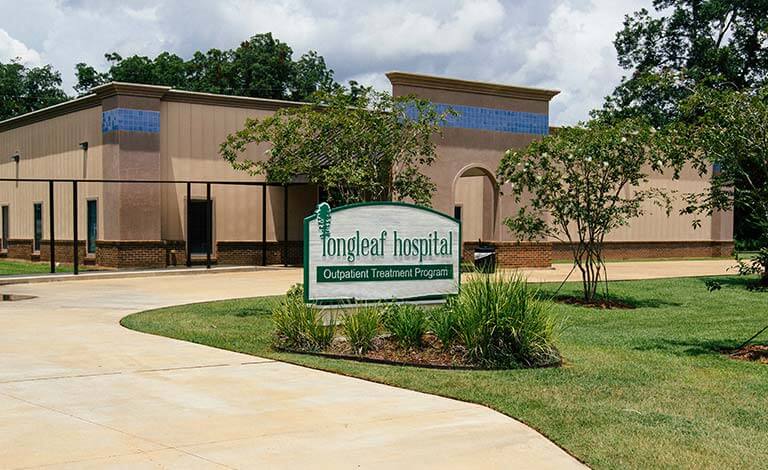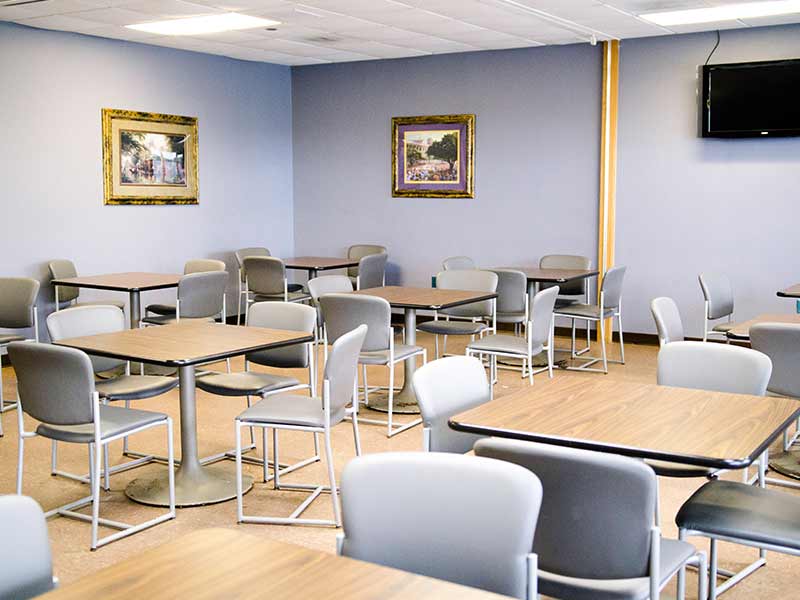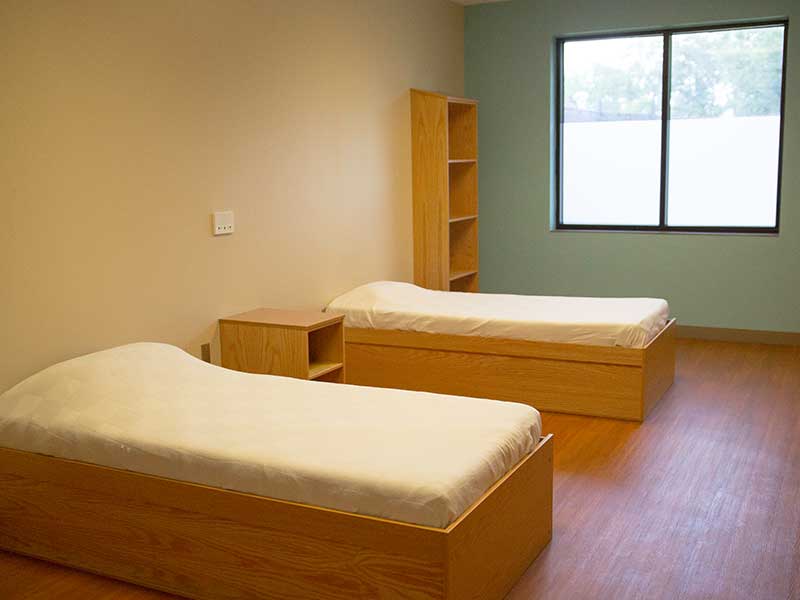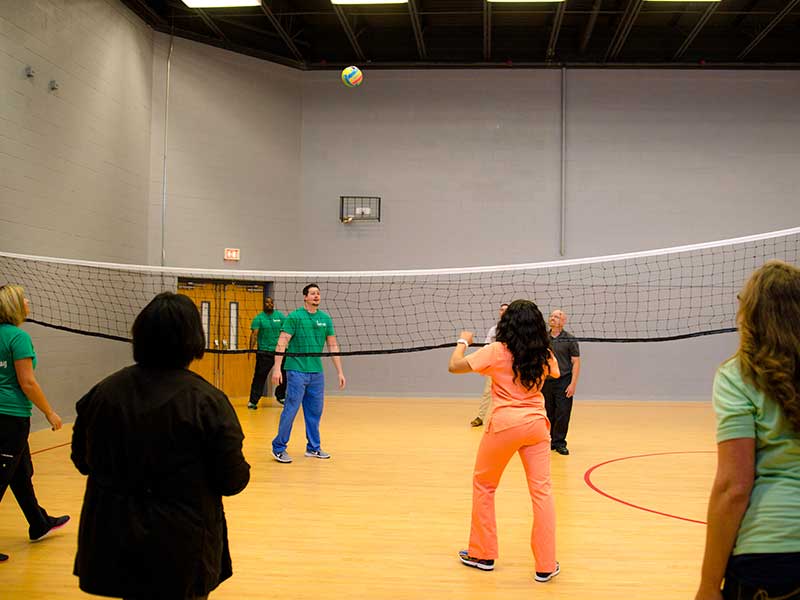Our commitment to comprehensive care for adjustment disorder means that we are prepared to provide you with the type, level, duration, and intensity of services that will best meet your needs.
Adjustment Disorder Treatment
Learn more about adjustment disorder treatment at Longleaf Hospital in Alexandria, LA
Distressing events will occur throughout the course of everyone’s life, and while they are painful, they are a normal part of the human experience. However, not everyone experiences tragedy, hurt, or significant loss in the same way. Some are able to navigate these events with support from close friends and family, and with good attention to self-care. But other people have a much harder time overcoming the distress that major life events can bring about. For them, events like job loss, the end of a romantic relationship, moving to a new place, the death of someone they care about, or other difficult experiences can bring about a series of painful symptoms that linger long after the activating event has passed.
When the scenario described above occurs, and there is a significant impact on one’s ability to function to potential in everyday life, it is likely that adjustment disorder has set in. A person impacted by adjustment disorder will face damages to his or her health or wellbeing that will last for months, and he or she may require professional help to overcome this troubling condition.
Fortunately, there are many hospitals, centers, and clinics that offer specialized programming designed to address the many ways that adjustment disorder can affect a person’s mental and emotional health. At Longleaf Hospital, we are dedicated to providing exceptional treatment to children, adolescents, teens, and adults so that they can gain the tools they need to overcome symptoms of adjustment disorder and other co-occurring mental health conditions.
How to Help a Loved One
Helping a loved one get treatment for adjustment disorder
If your child or someone else you care about begins showing signs of adjustment disorder, you can be of vital support in the effort to help him or her access treatment. However, it can be difficult to decide how to begin this process. As you prepare to help your loved one seek care for this condition, please consider the following:
- Familiarize yourself with the signs, symptoms, and causes of adjustment disorder. By doing some research on the subject, you’ll be better prepared to help your loved one.
- Understand that adjustment disorder can impact people in a variety of ways, especially with regard to age. No two people are alike, and adults and adolescents may experience the effects of this condition differently.
- Find out what options for care exist in your loved one’s area, and contact these centers or clinics to learn more about their programming.
- Present your findings to your loved one, and offer to accompany him or her to any initial assessments or intake appointments, or offer childcare or other types of assistance that may encourage your loved one to take this important step.
- Don’t be surprised if your loved one expresses some initial resistance to the idea of entering treatment. This is a major decision, and it is not to be taken lightly. Remember to keep a warm and empathic tone throughout these conversations, and keep the focus on getting your loved one the help he or she needs.
Throughout this important time, be mindful of your own health and wellbeing. Be sure to take time for yourself to do the things that rejuvenate you; the healthier and more energetic you are, the better suited you are to support your loved one.
Why Consider Treatment
Why consider treatment for adjustment disorder at Longleaf Hospital in Alexandria, LA
While there are many options for care for those suffering from adjustment disorder, sadly, not everyone who struggles with this condition gets the help they need. Left untreated, an individual with this disorder will face many types of hardship. Some symptoms of adjustment disorder are physical, causing disruptions in sleep, appetite, and overall wellbeing. Other symptoms are more behavioral or emotional, causing damages to one’s mood, social relationships, ability to perform at home, school, or work, and more.
Considering the host of damages that can occur if adjustment disorder is left untreated, it is advisable that those who have experienced the onset of this condition seek help from a reputable, professional treatment center like Longleaf Hospital. With the proper supports in place, you or a loved one can overcome the symptoms of adjustment disorder, and embrace a happy and healthy life.
Types of Treatment
Types of adjustment disorder treatment offered at Longleaf Hospital in Alexandria, LA
Located in Alexandria, LA, Longleaf Hospital is the area’s leading provider of individualized psychiatric care for children, adolescents, teens, and adults who are suffering from adjustment disorder and a host of other conditions. Having recently completed a full upgrade of clinic facilities in 2015, Longleaf offers a tranquil setting in which to heal. Our hospital is set amongst a peaceful wooded area, but is easily accessible off of highway 28 near the Alexandria Coliseum.
At Longleaf Hospital, we seek to provide the highest level of psychiatric care while treating each child, adolescent, and adult. Our program’s mission is to support long-term success for patients both during treatment at this clinic and after they return home. This is accomplished through the work of our expert team of highly qualified mental health and medical staff who are committed to providing dignity in treatment and to empowering patients to lead healthy, productive lives.
Patients who come to Longleaf may be struggling with a wide variety of psychiatric concerns, and treatment for adjustment disorder will consist of various supports that are tailored to address each patient’s unique strengths and challenges. For adult patients who are struggling with a co-occurring substance use disorder in addition to adjustment disorder, Longleaf is pleased to provide comprehensive care to address chemical dependencies of many types, including addictions to alcohol, benzodiazepines, heroin, opioids, marijuana, PCP, methamphetamines, cocaine, hallucinogenic, synthetics, and more.
Options for treatment at our clinic span the continuum of care, and include several options in order to provide the ideal treatment environment for every patient. We are also proud to offer specialized supports for active and retired military personnel and their dependents.
Upon admission, each patient is thoroughly assessed prior to beginning services at Longleaf, and a personalized plan of care is devised to encourage the most beneficial outcomes possible, no matter what level of care the patient is engaged in.
Short-term acute inpatient care is offered for children age 6 and above, adolescents, adults, and senior adults. In this setting, patients can receive a variety of supportive services designed to help them overcome symptoms of adjustment disorder, including:
- Medically assisted, supervised detoxification programming
- 12-Step based services
- Cognitive behavioral therapy (CBT)
- Motivational enhancement therapy (MET)
- Rational emotive behavioral therapy (REBT)
- Medical services from nurse practitioners and doctors
In addition to the treatment modalities listed above, all children, adolescents, and adults who seek care at Longleaf will have access to the following therapies:
- Medication management: If an individual’s symptoms can be effectively treated with prescription medications, our team can include medication management services into his or her personalized treatment plan. All medication decisions will involve the input and consent of the individual in treatment and/or his or her parents or guardians.
- Individual therapy: Master’s level social workers provide this one-on-one service to allow all patients to process issues from the past and present that have contributed to the onset of symptoms of adjustment disorder. In this private, confidential setting, individuals can discuss the challenges and successes that arise in treatment, and make a plan for continued success after leaving Longleaf.
- Family therapy: Family therapy is offered twice weekly and is designed to engage a patient’s loved ones in his or her recovery journey, to heal damaged relationships, and to increase the functionality of the family unit.
- Group therapy: All patients at Longleaf will have many opportunities to participate in group therapy. Offered daily, this intervention is used to help patients learn from each other, and to combat the sense of isolation that is common amongst those suffering from the symptoms of mental illness, including adjustment disorder. Group discussions are varied but could include topics such as anger management, impulse control, coping skills, and discharge planning.
At Longleaf Hospital, we are proud to have a long history of providing superior service to active duty military members, veterans, and their families. Our military support efforts are led by our medical director, a retired Army colonel who works closely with all military members who heal at Longleaf. We do not have a specialized treatment track for military members, but we ensure that the unique issues and challenges that are experienced by members of the military community are addressed in each patient’s personalized treatment plan, and we place a premium on ensuring that all military-affiliated patients receive the customized care that will best prepare them for long-term success.
In addition to Longleaf Hospital’s acute inpatient care program, the partial hospitalization program (PHP) is another option for support that is available to adult patients age 18 and above. PHP at Longleaf, which typically spans a time period of 2 to 6 weeks, has been proven successful in addressing adjustment disorder. This option is suitable for patients who require a high level of support, but who are able to return to their home environments in the evening.
Programming within this level of care is based on 12-Step ideology, cognitive behavioral therapy (CBT), and motivational interviewing. Medication management is also available within PHP at Longleaf, and patients can meet with a psychiatrist twice per week while in this program. Individual, family, and group therapies are also provided, as well as thorough discharge planning.
The least acute option for care for adjustment disorder at Longleaf Hospital is the intensive outpatient program (IOP). This form of support can be used as a step-down level of care from other programs, or for adults age 18 and above who do not require a higher level of care. Typically lasting 8 to 12 weeks, IOP at Longleaf consists of medication management services and various time-tested therapeutic techniques designed to address symptoms of adjustment disorder.
Learn More Today
Get more information about treatment for adjustment disorder
The admissions staff at Longleaf is available to speak with referral sources and prospective patients and their families 24/7. Upon contacting Longleaf, a licensed intake counselor can provide an initial assessment, and answer any questions that you may have about healing at our hospital. The decision to seek care for adjustment disorder may be a difficult one, but the compassionate professional team at Longleaf Hospital in Alexandria, Louisiana, is here to ensure that you find the very best support for yourself or a loved one.












